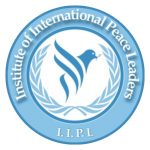Institute of International Peace Leaders

Institute of international peace leaders
"Empowering Leaders, Building Bridges, Creating Peaceful Communities."
About Us
Vision, Mission and Values
about
The Institute of International Peace Leaders (IIPL) stands as a beacon of hope in the realm of peace-building and global harmony. Established in October, 2019 as an independent think tank, IIPL operates without affiliation to any specific political party, ideology, or religious sect. Its activities are driven by a mission to serve the public good rather than financial gain., IIPL embodies the ethos of non-partisanship, non-politicalism, non-sectarianism, and non-profit pursuit of peace. IIPL functions as an independent think tank, implying that it conducts research, analysis, and advocacy on peace-related issues free from external influence or bias.
At its core, IIPL is committed to advancing peace-building initiatives through innovative strategies and a value-based approach. Through rigorous research, analysis, and advocacy, IIPL seeks to foster an understanding of the root causes of conflicts and promote sustainable solutions that prioritize human rights, justice, and equality.
One of IIPL’s primary objectives is to raise awareness of the United Nations’ Sustainable Development Goals (SDGs) and the principles of human rights. By educating communities, policymakers, and stakeholders on the importance of these frameworks, IIPL aims to mobilize collective action towards achieving a more just, equitable, and sustainable world.
Recognizing the interconnectedness of peace, development, and environmental sustainability, IIPL also addresses the pressing challenge of climate change. Through its advocacy efforts and partnerships, IIPL advocates for policies and actions that mitigate the impacts of climate change and promote environmental stewardship as integral components of peace-building efforts.
Central to IIPL’s mission is the cultivation of a new generation of young leaders in international relations and peace-building. Through training programs, mentorship initiatives, and educational resources, IIPL empowers young people with the skills, knowledge, and values needed to become effective agents of positive change in their communities and beyond.
In pursuit of its goals, IIPL engages in Track II diplomacy, harnessing the power of unofficial, non-governmental channels to facilitate dialogue, build trust, and explore innovative solutions to conflicts. By convening dialogues, conferences, and workshops, IIPL brings together diverse stakeholders, including diplomats, academics, civil society actors, and grassroots leaders, to forge consensus and promote understanding.
Through its network of Track II diplomats and peacebuilders, IIPL serves as a catalyst for positive change, working tirelessly to create a more peaceful, just, and sustainable world for present and future generations.

VISION
"The Institute of International Peace Leaders envisions a world where the absence of violent conflict is not only achievable but imperative for global security and human prosperity. We believe that sustainable peace is essential for fostering development, preserving nature, and fostering harmony among nations and communities."

MISSION
"Our mission is to cultivate a global community of peace leaders committed to advancing the vision of a conflict-free world. Through education, advocacy, and collaboration, we strive to empower individuals and societies to build resilient peace frameworks that promote sustainable development, environmental stewardship, and harmonious coexistence."
As the Institute of International Peace Leaders, our mission is deeply rooted in promoting peace, sustainable development, climate action, human rights, and harmony. Here’s a comprehensive overview of what we do in each of these areas:
Here’s a summary of what the Institute of International Peace Leaders (IIPL) does:
- Promotes Innovation in Peacebuilding: IIPL develops and promotes innovative approaches, strategies, and techniques for peacebuilding. This could involve researching new methodologies, policies, and practices that contribute to more effective conflict resolution and peacebuilding efforts.
- Advocates for a Value-Based Approach: IIPL advocates for a value-based approach to peacebuilding, emphasizing principles such as human rights, justice, equality, and dignity. It seeks to integrate these values into peacebuilding strategies and policies.
- Raises Awareness on SDGs and Human Rights: IIPL works to raise awareness about the United Nations’ Sustainable Development Goals (SDGs) and human rights principles. This involves educating communities, policymakers, and stakeholders about the importance of these frameworks for achieving peace, stability, and sustainable development.
- Develops Young Leaders in International Relations: IIPL focuses on nurturing a new generation of young leaders in the field of international relations and peacebuilding. It provides training, mentorship, and opportunities for young people to develop the skills, knowledge, and values necessary for effective leadership in promoting peace and diplomacy.
- Engages in Track II Diplomacy: IIPL engages in Track II diplomacy, which involves unofficial, non-governmental efforts to facilitate dialogue, build trust, and explore solutions to conflicts. This could include organizing dialogues, conferences, and workshops that bring together stakeholders from different sides of a conflict to discuss and address issues in a non-official capacity.
- Builds a Global Network for Peacebuilding: IIPL has established a global network of individuals and organizations committed to peacebuilding. This network collaborates to develop community, national, and regional models for peacebuilding, with the aim of fostering ethical and cohesive societies.
Overall, IIPL’s activities encompass research, advocacy, capacity building, diplomatic engagement, and networking, all with the overarching goal of promoting peace, justice, and stability at local, national, and international levels.
- Develop and implement peacebuilding programs focused on addressing the root causes of conflict, fostering reconciliation, and promoting peaceful coexistence.
- Provide training and capacity-building workshops for individuals and communities on conflict resolution, mediation, and nonviolent communication.
- Facilitate dialogue processes between conflicting parties to promote understanding, trust, and cooperation.
- Support local peacebuilding initiatives and grassroots organizations working to build peace in conflict-affected areas.
- Conduct research and analysis on the intersections between peacebuilding and sustainable development, identifying synergies and opportunities for collaboration.
- Promote sustainable development practices that prioritize social equity, environmental protection, and economic prosperity.
- Advocate for policies and initiatives that integrate peacebuilding and sustainability goals, recognizing the interconnectedness of peace, development, and environmental health.
- Support community-led development projects that address local needs while promoting peace, resilience, and sustainability.
- Raise awareness about the linkages between climate change, conflict, and insecurity, highlighting the importance of addressing climate-related challenges for peacebuilding efforts.
- Advocate for climate action policies that promote mitigation, adaptation, and resilience-building strategies at local, national, and international levels.
- Support initiatives that empower communities to adapt to climate change impacts and build resilience to environmental stresses.
- Promote renewable energy, sustainable land management, and conservation practices as key components of peacebuilding and climate action.
- Advocate for the protection and promotion of human rights, including the rights of marginalized and vulnerable populations, as essential elements of peace and security.
- Monitor human rights violations and abuses, and support efforts to hold perpetrators accountable through legal mechanisms and advocacy campaigns.
- Provide training and resources to empower individuals and communities to advocate for their rights and participate in decision-making processes.
- Support civil society organizations and human rights defenders working to promote justice, equality, and inclusivity in their communities.
- Facilitate interfaith dialogue and cooperation initiatives aimed at promoting understanding, tolerance, and respect among people of different religious and cultural backgrounds.
- Organize interfaith events, workshops, and exchanges to foster dialogue, build relationships, and address common challenges collaboratively.
- Support interfaith peacebuilding projects that promote reconciliation, social cohesion, and peaceful coexistence in diverse societies.
- Advocate for policies and initiatives that promote religious freedom, pluralism, and the rights of religious minorities, recognizing the importance of religious harmony for peace and stability.
How the Institute of International Peace Leaders (IIPL) carries out its mission:
- Research and Analysis: IIPL conducts research to identify innovative approaches and best practices in peacebuilding and conflict resolution. This research informs the development of strategies, policies, and techniques for promoting peace and addressing conflicts.
- Advocacy and Awareness Campaigns: IIPL launches advocacy campaigns to raise awareness about the importance of peace, human rights, and sustainable development. These campaigns target diverse audiences, including policymakers, civil society organizations, and the general public, aiming to mobilize support for peacebuilding initiatives.
- Capacity Building and Training Programs: IIPL organizes capacity-building workshops, training programs, and educational initiatives to equip individuals, especially young leaders, with the skills, knowledge, and values necessary for effective engagement in peacebuilding and international relations.
- Track II Diplomacy Initiatives: IIPL facilitates Track II diplomacy initiatives by organizing dialogues, conferences, and workshops that bring together stakeholders from different sides of a conflict. These initiatives provide a platform for dialogue, trust-building, and the exploration of potential solutions to conflicts in a non-official capacity.
- Networking and Collaboration: IIPL fosters networking and collaboration among individuals and organizations involved in peacebuilding and international relations. It convenes meetings, conferences, and events to facilitate exchange, collaboration, and joint initiatives aimed at promoting peace and stability.
- Global Network Development: IIPL works to expand and strengthen its global network of peacebuilders, diplomats, academics, and practitioners. This network serves as a platform for sharing knowledge, experiences, and resources, as well as for developing community, national, and regional peace-building models.
- Partnerships and Alliances: IIPL forms partnerships and alliances with like-minded organizations, governments, and international institutions to leverage resources, expertise, and influence in advancing its mission. These partnerships enable IIPL to amplify its impact and reach a broader audience with its peacebuilding initiatives.
- Monitoring and Evaluation: IIPL regularly monitors and evaluates the effectiveness of its programs and initiatives to ensure they are achieving their intended outcomes. This includes gathering feedback from stakeholders, conducting assessments, and adjusting strategies as needed to maximize impact.